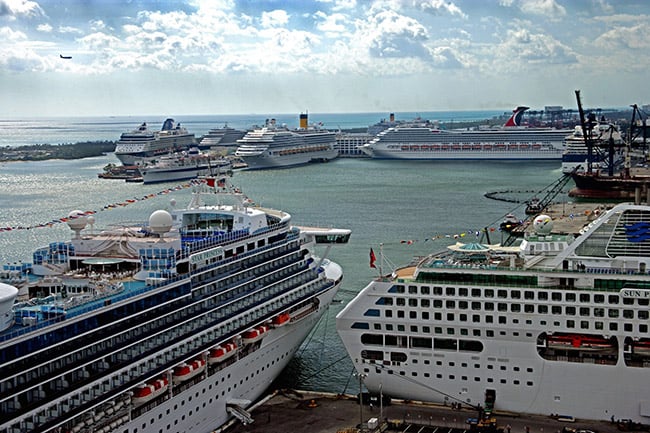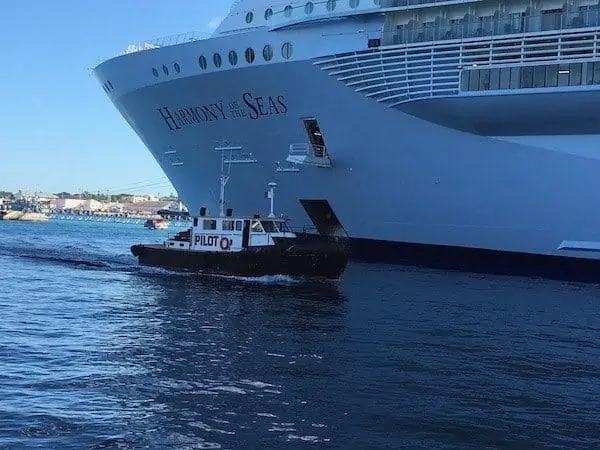
They say the devil’s in the details, and in this case, they’re right. And those details are outlined in the fine print of the cruise contract that we all “click here” to indicate we’ve read when in fact, we’ve barely glanced at it in our rush to get to the Lido deck.If you do stop to read that cruise contract (Bring your magnifying glass!) you’ll find out all kinds of things, including what expenses are being passed along to the consumer as well as expenses that aren’t, but can be at the cruise line’s discretion.
Read Your Cruise Contract
Here’s one section from Carnival Cruise Line’s cruise contract:
“Cruise Fare does not include Cruise Taxes, Fees, and Port Expenses. [Those] may include any and all fees, charges, tolls and taxes imposed on Carnival, by governmental or quasi-governmental authorities, as well as third party fees and charges arising from a vessel’s presence in a harbor or port.
Cruise Taxes, Fees and Port Expenses may include U.S. Customs fees, head taxes, Panama Canal tolls, dockage fees, wharfage fees, inspection fees, pilotage, immigration and naturalization fees, and Internal Revenue Service fees, environmental fees, as well as fees associated with navigation, berthing, stevedoring, baggage handling/storage, and security services.
Cruise Taxes, Fees, and Port Expenses may be assessed per passenger, per berth, per ton or per vessel. Assessments calculated on a per ton or per vessel basis will be spread over the number of passengers on the Vessel. Subject to applicable laws, Cruise Taxes, Fees and Port Expenses are subject to change and Carnival reserves the right to collect any increases in effect at the time of sailing even if the fare has already been paid in full.”
What It All Means
In essence, the cruise contract says that if Carnival encounters an expense, it can be passed along to the passengers. Typically, the fees will vary depending on the length of the cruise, ports of call and the homeport from which the ship sailed.
Take for example port of call fees. Every time a ship visits a port, the local authorities charge the cruise line a fee in exchange for the right to dock there and the various services associated with the ship’s visit. Those costs also vary from one port of call to another.
Then there’s the pilot fee. If you’ve ever wondered about that smaller boat that approaches a cruise ship as it’s headed into port, that boat carries the pilot.
It’s his or her job to go up to the bridge and guide the ship into the port. Think of it as hiring a professional driver to take you through a part of town they’re much more familiar with than you.
The pilot boat passing Royal Caribbean’s Harmony of the Seas.
Cruise lines also have to pay a per-passenger fee, known as a head tax. Generally speaking, this is to help cover costs associated with passengers using the local infrastructure.
